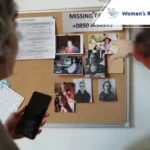Sex trafficking is a harrowing and pervasive issue that affects communities across the country, including California. It’s a crime that often goes unnoticed, with victims hidden in plain sight.
Sex trafficking is a specific form of human trafficking that focuses on the commercial sexual exploitation of individuals. It involves coercing, deceiving, or forcing individuals, typically women and children, into engaging in sexual activities against their will. Victims of sex trafficking are often subjected to physical and psychological abuse, held against their consent, and forced to work in the sex industry under deplorable conditions.
In this blog, we will shed light on the warning signs of sex trafficking, specifically in people you may know personally. We’ll discuss what sex trafficking is, the vulnerability of victims, the role of traffickers in grooming victims, and the possibility of traffickers targeting individuals within their communities.
Understanding Sex Trafficking
Sex trafficking is a subset of human trafficking. It involves the trafficking of individuals for the purpose of sexual exploitation or sexual abuse. In many cases, individuals who are trafficked for sexual exploitation may also experience other forms of exploitation, such as forced labor, servitude, or physical abuse.
Both sex trafficking and human trafficking are grave human rights violations and crimes. Efforts to combat these issues involve raising awareness, implementing legal frameworks to prosecute traffickers, providing support and protection to victims, and addressing the underlying factors that make individuals vulnerable to trafficking, such as poverty, lack of education, and social inequality.
The Vulnerability of Victims
Understanding the factors that make individuals susceptible to sex trafficking is essential for prevention.
- Social Vulnerability: Victims of sex trafficking often come from marginalized communities or have limited social support networks. Traffickers exploit their vulnerability, making it more challenging for victims to seek help or escape their predicament.
- Economic Vulnerability: Economic hardships can push individuals into vulnerable situations where they may be more susceptible to traffickers’ promises of financial security or better opportunities.
- Psychological Vulnerability: Some victims may have experienced trauma, abuse, or have mental health issues, making them more susceptible to manipulation and control by traffickers.
- Age Vulnerability: Children and young adults are particularly vulnerable to sex trafficking due to their limited life experience and dependence on adults.
Traffickers’ Grooming Techniques
Traffickers employ cunning strategies to manipulate and control their victims, trapping them in a cycle of exploitation. Some of the know grooming techniques that sex and human traffickers use are:
- Building Trust: Traffickers often use a gradual approach to gain their victims’ trust, posing as caring individuals who offer emotional support and companionship.
- Isolation: Traffickers isolate their victims from friends and family, cutting off external support systems and making escape more difficult.
- Manipulation: Traffickers employ psychological manipulation tactics to instill fear, dependency, and a sense of loyalty in their victims, further binding them to their traffickers.
- Control Through Force: In some cases, traffickers resort to physical violence, threats, or the use of drugs to maintain control over their victims.
Trafficking by Known Individuals
Sex traffickers often exploit pre-existing relationships, making it challenging for victims to recognize the danger until it’s too late. Unfortunately,
- Family Members: Shockingly, some victims are trafficked by their own family members who exploit their trust and authority.
- Acquaintances: Traffickers may be individuals whom victims know personally, such as friends, neighbors, or romantic partners. This proximity allows traffickers to exploit existing relationships.
- Employers: In cases of labor trafficking, victims may be trafficked by their employers who exploit their vulnerability and lack of legal status.
- Community Members: Traffickers can also be part of the victim’s community, making it even harder for victims to escape or seek help.

Warning Signs of Sex Trafficking
Recognizing the warning signs of sex trafficking is crucial for identifying potential victims in your community. While some signs may be more obvious, it’s essential to be aware of subtle indicators that traffickers may use:
Behavioral and Physical Signs
Recognizing behavioral warning signs is crucial in identifying potential victims of sex trafficking. Additionally, physical signs can be telling indicators of sex trafficking and may help reveal hidden victims. These signs include:
- Victims may show sudden changes in behavior, mood, or attitude.
- Victims avoid eye contact and they usually appear to be fearful, anxious, or submissive behavior, especially when speaking with others.
- Trafficking victims also have unexplained absences from school or work.
- Frequent health issues or signs of physical abuse are also common among victims.
- Tattoos or branding are often used by traffickers to mark their victims as a method of control.
Red Flags in Relationships and Behaviors
Understanding red flags in relationships is essential for uncovering cases of exploitation and abuse. Common red flags related to potential trafficking situations are:
- Isolation or false promises from family and friends
- Controlling or possessive partners
- Frequent relocation or travel with no clear explanation
- Frequent absence from social gatherings or community events
- Signs of drug addiction, which traffickers may use to control victims
Signs of Coercion and Manipulation
The insidious tactics of coercion and manipulation play a central role in keeping victims trapped in the cycle of sex trafficking. Common signs are:
- Personal possessions and identity documents held by someone else
- Lack of control over personal finances
- Fear of law enforcement or authorities
- Inability to speak freely or make decisions independently
Social Media Activities: Untold Sex Trafficking Warning Signs
In today’s digital age, social media platforms play a significant role in our lives, including the lives of human trafficking victims. Keep an eye out for unusual online behaviors and content that may indicate someone is being coerced or manipulated into sex trafficking:
- Frequent Location Changes: Frequent changes in location settings or geotags that don’t align with the victim’s usual whereabouts could suggest their movements are being monitored.
- Restricted Access to Social Media: Victims may have limited access to their cell phones and own social media accounts, or their traffickers might actively manage their profiles to control their online presence.
- Repetitive, Controlled Content: Victims may post repetitive or controlled content that reflects the interests and preferences of their traffickers rather than their own.
- Online Relationships with Strangers: Unusual online friendships or relationships with strangers, particularly those who appear controlling or intimidating, can be a sign of coercion.
- Expressing Desperation or Seeking Help: In some instances, victims may subtly or discreetly express their desperation or desire for help through cryptic messages or coded language.
By being attentive to these less obvious sex trafficking warning signs, we can become more effective at identifying and assisting potential victims. It is our collective responsibility to remain vigilant, report suspicious activity, and provide support to those who may be trapped in this devastating cycle of exploitation.
Are you a sex trafficking survivor? We can help you.
Community’s Role in Prevention and Action
Sex trafficking is a pressing issue that demands a collective effort to combat. Communities play a pivotal role in prevention, intervention, and support for victims. The following are points discussing the community’s role in addressing sex trafficking by focusing on identifying suspicious activities, reporting protocols, and supporting victims.
Identifying Suspicious Activities
Recognizing potential signs of sex trafficking is the first crucial step in safeguarding our communities from this pervasive crime. You can:
- Be Vigilant: Vigilance is a critical step in spotting potential cases of sex trafficking. Pay attention to your surroundings, both in public spaces and online.
- Know the Red Flags: Educate yourself and your community about the warning signs of sex trafficking, as discussed earlier. These include behavioral changes, physical indicators, and unusual social media activity.
- Trust Your Instincts: If something doesn’t seem right or feels off, trust your instincts. Gut feelings can often lead to uncovering hidden cases of trafficking.
- Stay Informed: Keep up-to-date with local news and initiatives related to human trafficking. Awareness campaigns and training sessions can provide valuable insights.
Reporting Protocols
Knowing how and when to report suspicious activities is vital in ensuring that victims receive the help they need and that traffickers are brought to justice.
- Contact Local Authorities: If you suspect someone is a victim of sex trafficking or have witnessed suspicious activity, contact your local law enforcement agency. They are trained to handle these situations.
- Use Hotlines: California has human trafficking hotlines where you can report suspected cases anonymously. If you suspect a sex trafficking incident, you may call the National Trafficking Hotline (1-888-373-7888). But if you or a person is in immediate danger, you may want to go ahead and call 911.
- Document and Record: When possible and safe to do so, document relevant information, such as license plate numbers, descriptions of individuals involved, locations, and any other pertinent details that could aid authorities in their investigation.
Supporting Victims
Offering support to survivors of sex trafficking is a compassionate and vital part of our collective effort to combat this deeply troubling issue.
- Offer a Safe Space: If you encounter a potential victim who feels comfortable reaching out, provide a safe space for them to share their concerns and experiences. Listen empathetically without judgment.
- Refer to Support Services: Connect potential victims with local organizations or support services that specialize in helping trafficking survivors. These organizations can provide resources, counseling, and legal assistance.
- Raise Awareness: Advocate for increased awareness and resources within your community to support trafficking survivors. Encourage community leaders, schools, and businesses to take action against sex trafficking.
- Volunteer and Donate: Consider volunteering or donating to organizations that combat human trafficking. Your time and resources can make a significant impact in assisting victims and preventing future cases.
Legal Recourse for Sex Trafficking Victims
Sex trafficking is a grave violation of human rights, and sex trafficking victims in California have legal recourse to seek justice and support in their journey to recovery. Hiring a lawyer will help victims get justice and compensation they deserve.
- Protection and Advocacy: A sex trafficking lawyer can advocate for victims in court, assist in obtaining restraining orders, and help survivors secure protective measures.
- Seeking Compensation: Victims may be entitled to financial compensation for the physical and emotional trauma they’ve endured. Legal representation can aid in pursuing civil suits against traffickers or those who profited from the exploitation.
- Access to Services: Lawyers can connect victims with essential services such as counseling, shelter, and medical care, ensuring that survivors receive comprehensive support.
- Support Through Legal Proceedings: Navigating the legal system can be daunting for victims. Attorneys can provide guidance, explain the legal process, and offer emotional support throughout legal proceedings.
Seek the Help You Need Today
Sex trafficking is a deeply troubling issue that affects communities on a personal level. By understanding the warning signs, staying vigilant, and actively participating in prevention efforts, we can work together to combat sex trafficking and protect those who may be at risk. It is our collective responsibility to create safer communities and support victims on their journey to recovery.
If you or a loved one are survivors of sex trafficking, taking action and seeking assistance is crucial. The Women’s Rights Group is an organization firmly committed to aiding individuals who have endured sexual violence within commercial settings.
Our team is equipped to offer vital support, guiding you through the intricate and challenging process. We can assist you in accessing both medical care and legal representation. Do not hesitate to reach out to us. You can call us at (844) 240-4967 for a free, confidential consultation.
Help and support are within your reach. We can help you.






